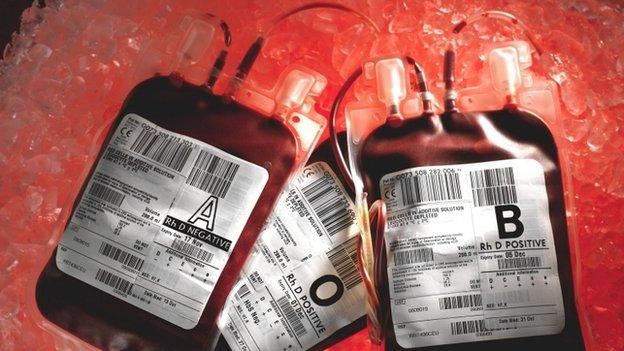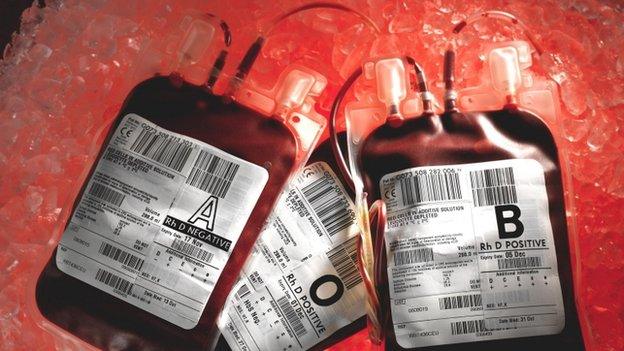Infected blood scandal: Government proposes more money for victims
- Published

The government wants to increase the amount of money on offer for those affected by the blood contamination scandal by a further £100m, public health minister Jane Ellison has said.
Thousands of people were infected with Hepatitis C and HIV through NHS blood products in the 1970s and 80s.
Ms Ellison said the money would come from the Department of Health's budget, and she apologised again to victims.
In March last year the Penrose report, external was published after a six-year inquiry.
Lord Penrose, a retired judge, concluded that more should have been done to screen blood and donors for hepatitis C in the early 1990s.
Consultation opens
Many of those affected were in Scotland, which was the only part of the UK to hold an inquiry.
Ms Ellison said the government was now opening a 12-week consultation, external on the new payment proposals.
She said the £100m is in addition to the £25m which was announced in March - taking the total to £225m over the five years to 2020.
"This is significantly more than any previous government has been able to provide for those affected by this tragedy," she told MPs in the Commons.
But she also admitted that "no amount of money could make up for the impact" blood infections had on victims and families.
The contaminated blood scandal has been described as the worst treatment disaster in the history of the NHS, and was responsible for the deaths of hundreds of people - many of whom were haemophilia patients.
In Scotland the Penrose report said that 478 people acquired the Hepatitis C virus from blood product therapy, and 2,500 acquired the virus from blood transfusion in Scotland between 1970 and 1991.
Sixty patients acquired HIV from therapy with blood products, and 18 from blood transfusion in Scotland.
'Advances in medicine'
The scandal happened before the creation of the devolved Scottish Parliament, which now has full responsibility for the NHS in Scotland.
When the Penrose report was published last year there was an angry response from victims and relatives, some of whom labelled it a "whitewash", and burned copies of the report on the streets of Edinburgh.
Ms Ellison also said that within the consultation there was a proposal for all those currently receiving regular support to have that funding increased to £15,000 a year, and those who are co-infected - as in contaminated with more than one virus - should get £30,000.
She also said the government wanted to "focus on those who are infected" and be able to "respond to new advances in medicine".
As well as the extra cash the government is also proposing to make a single body responsible for a new support scheme with the promise of more help for certain groups of people, such as those with Hepatitis C.
"There is a large population within the infected blood community who currently do not receive any regular financial support. These are the people with Hepatitis C.
"I believe it is important that everybody receives support from the new scheme and that this is linked to the impact that infection has on their health," she said.
Shadow health minister Andrew Gwynne praised the government's intentions for a consultation, but noted the "injustice felt by many victims".
- Published25 March 2015
